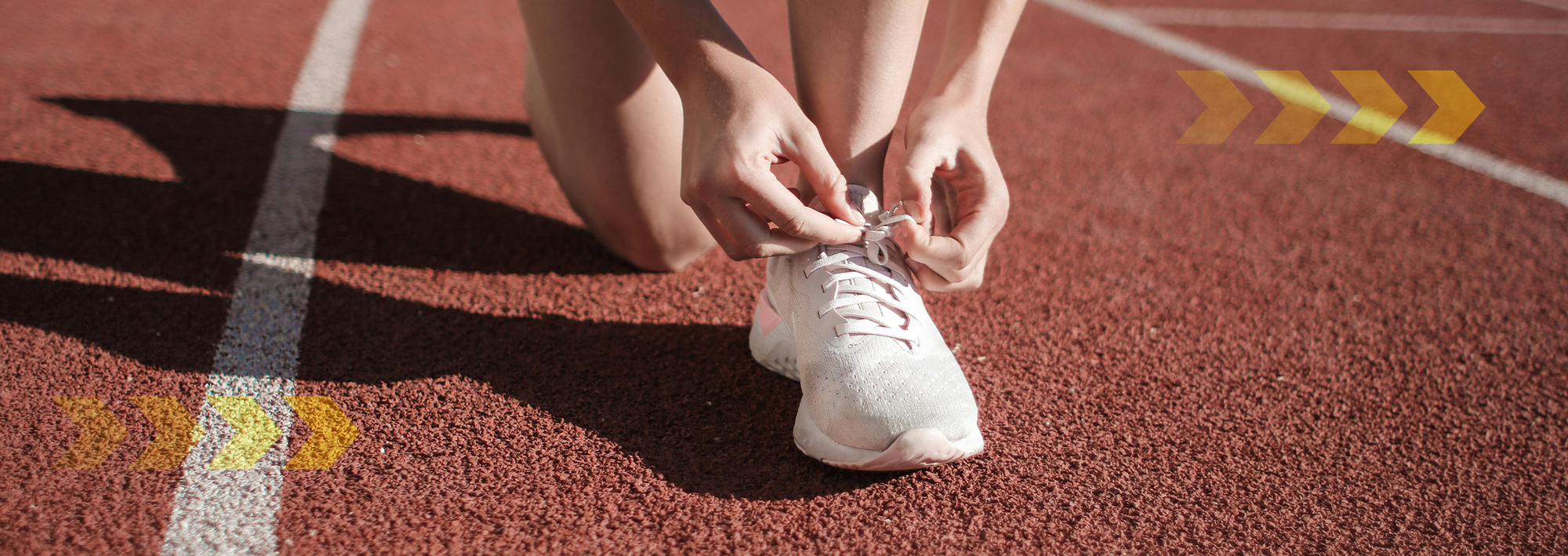When preparing for long runs or race day, nutrition plays a crucial role in your performance. How you fuel before, during, and after the run can be the difference between a personal best and hitting the wall. In this guide, we’ll explore how to strategically fuel your body for both training runs and race day, with tips on the optimal macronutrient intake, timing, and hydration strategies.

Why Is Proper Fueling Important?
During long runs and endurance events, your body relies on glycogen stores for energy. However, these stores are limited. Once depleted, your body shifts to fat for energy, which is less efficient and can lead to fatigue and a significant drop in performance. Proper fueling before and during your run ensures that your glycogen levels are topped up, enabling you to perform at your best for longer.
Pre-Run Fueling: The Foundation

- Carbohydrate Loading
For long-distance events like a marathon, carbohydrate loading is a popular strategy. This involves increasing your carbohydrate intake to 7-10g per kilogram of body weight in the 2-3 days leading up to your race. The goal is to maximize glycogen stores so your muscles have a ready source of energy during the race.
For example, if you weigh 70kg, you should aim for 490-700g of carbohydrates daily. Focus on easy-to-digest carbs like pasta, rice, bread, and low-fiber fruits (bananas, applesauce, etc.).
For your raced-day itself, aim to get 2-4 grams of carbohydrates per kilogram of bodyweight 2-4 hours before your long run or race

- Pre-Run Meal Timing
The timing of your pre-run meal can impact how well you perform. Ideally, eat your last big meal 3-4 hours before your run to allow time for digestion. This meal should be rich in carbohydrates and moderate in protein, with minimal fat and fiber to avoid stomach issues.
Sample Pre-Run Meal:
- Bagel with honey or jam
- Banana
- Small serving of oatmeal with almond butter
If your race or long run is early in the morning, and you don’t have time for a full meal, opt for a lighter snack that’s easily digestible, such as a sports drink, energy gel, or a banana 30-60 minutes before the start.

- Glucose to Fructose Ratio
Research shows that using a 2:1 ratio of glucose to fructose during endurance activities helps optimize carbohydrate absorption and utilization. Glucose and fructose are absorbed via different pathways in the body, allowing for more efficient energy delivery. Sports drinks, energy gels, or even natural options like bananas and honey can provide the ideal carbohydrate mix.
Fueling During Long Runs and Race Day
Once your glycogen stores are depleted, you need to take in carbs during your run to maintain energy levels. The general recommendation is to consume 30-60g of carbohydrates per hour for runs longer than 90 minutes. For ultra-endurance events, this can be increased to up to 90g per hour.
Here are some options for during-run fuel:
- Energy gels: Contain around 20-30g of carbs per packet
- Sports drinks: Provide both fluids and 30-50g of carbs per bottle
- Carbohydate Drink Mixes: Can provide a mix of carbohydrates and electrolytes to replenish glycogen stores 1st Phorm Ignition
- Energy chews: Portable and easy to digest, usually around 30-40g of carbs per packet
Timing is Key
Start taking in carbs 30-45 minutes into your run, and continue refueling every 30 minutes or so. Always practice your fueling strategy during training runs to see what works best for your stomach and energy levels.
Hydration Matters In addition to carbs, hydration is essential during long runs. Aim to drink 500-750ml of fluids per hour depending on the temperature and your sweat rate. Electrolytes, particularly sodium, are crucial to avoid cramping, so consider a sports drink or adding electrolyte tablets to your water. You can even consider consuming on-the-go electrolyte chews.
Remember, it is critical to practice your race-day fueling strategy during your training runs, because your body needs to get accustomed to digesting and performing with your increased carbohydrate intake while it is working hard.
Post-Run Recovery
Recovery nutrition is just as important as pre- and during-run fueling. After a long run, your body is in a glycogen-depleted state and your muscles are in need of repair. To optimize recovery, aim to eat within 30-60 minutes post-run.
- Carbohydrates: Replenish glycogen stores by consuming 1-1.2g of carbs per kg of body weight within the first hour. For a 70kg person, this is about 70-85g of carbs. Good options include:
- Glycogen replenishment formula
- Smoothies with fruit and oats
- Pasta or rice with lean protein
-
Protein: Muscle repair is crucial after endurance events. Aim for 20-30g of protein post-run. A fast acting protein shake chicken breast, or Greek yogurt are excellent choices.
- Hydration: Continue rehydrating with water or electrolyte drinks to replace the fluids lost during your run.
Sample Race Day Nutrition Plan
Day Before
- Breakfast: Oatmeal with honey, banana, and a side of toast
- Lunch: Turkey sandwich with white bread, fruit, and a sports drink
- Dinner: Pasta with a lean protein source (chicken, fish), and some steamed vegetables
- Snacks: Energy bars, pretzels, sports drinks
Race Morning
- 3 hours before: Bagel with peanut butter and honey, banana, and water
- 1 hour before: Sports drink or energy gel
During the Race
- 30 minutes in: 1 gel or 500ml of sports drink (30-40g carbs)
- Every 30-45 minutes: Another gel, sports drink, or banana
After the Race
- Within 30 minutes: Recovery drink with carbs and protein (e.g., a smoothie or chocolate milk)
- Within 2 hours: A balanced meal with carbs, protein, and vegetables (e.g., rice with chicken and vegetables)
Sources of Glucose and Fructose
Glucose Sources:
- Bread (white or whole grain)
- Rice (white or brown)
- Pasta
- Potatoes and sweet potatoes
- Oats
- Sports drinks and gels
- Energy chews
- Bagels
Fructose Sources:
- Honey
- Apples
- Bananas
- Berries (strawberries, blueberries)
- Dried fruit (mango, apricots)
- Fruit juices (orange juice, apple juice)
- Watermelon
Foods to Avoid Before and During Long Runs
- High-Fiber Foods: Foods high in fiber (e.g., beans, lentils, broccoli, and other cruciferous vegetables) can cause gastrointestinal discomfort and bloating during a run.
- Fried or Fatty Foods: Foods high in fat (e.g., fried foods, greasy burgers, and pizza) take longer to digest and can cause stomach issues.
- Spicy Foods: Spicy foods can irritate the stomach and lead to digestive distress during a long run.
- Excessive Dairy: For those who are lactose intolerant or sensitive, dairy can cause bloating and discomfort.
- Sugary Snacks: Avoid high-sugar snacks like candy bars or cakes that can cause a spike and crash in blood sugar levels.
- Alcohol: Alcohol can dehydrate your body and disrupt sleep patterns, affecting your overall performance. Avoid alcohol in the days before your race.
- New or Unfamiliar Foods: Stick to foods you're familiar with and have tested during your training sessions. Introducing new or unusual foods before the event can lead to digestive surprises.
Conclusion
Fueling for long runs and race day is all about preparation. By focusing on proper carbohydrate intake, maintaining hydration, and choosing the right foods, you can optimize your performance and recovery. Whether you're training for a marathon or doing a long training run, practice your fueling strategy to ensure you're ready for race day.

References:
- Burke, L. M., et al. (2011). “Carbohydrates for training and competition.” Journal of Sports Sciences, 29(S1), S17-S27.
- Jeukendrup, A. E. (2010). “Carbohydrate and exercise performance: The role of multiple transportable carbohydrates.” Current Opinion in Clinical Nutrition & Metabolic Care, 13(4), 452-457.
- Beelen, M., et al. (2010). “Nutritional strategies to promote postexercise recovery.” International Journal of Sport Nutrition and Exercise Metabolism, 20(6), 515-532.





